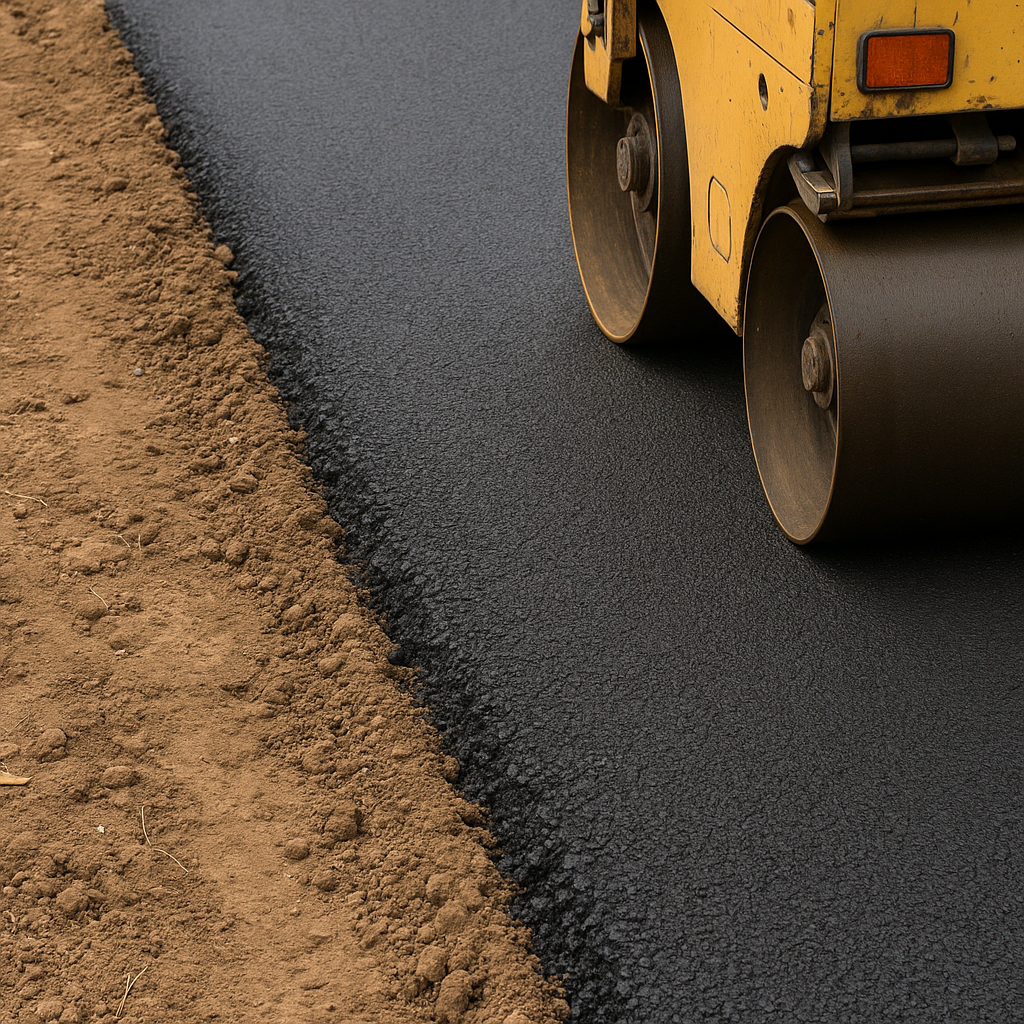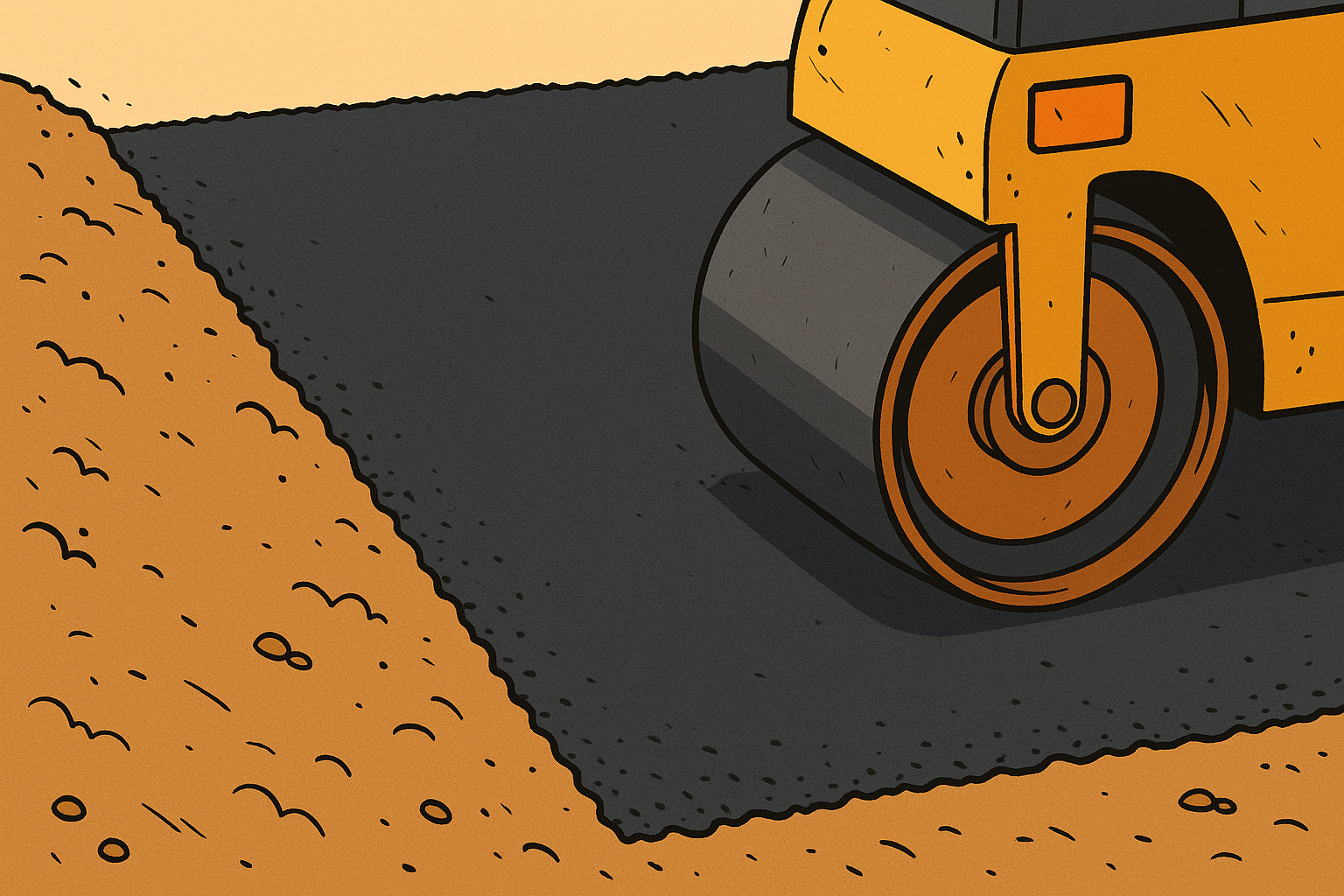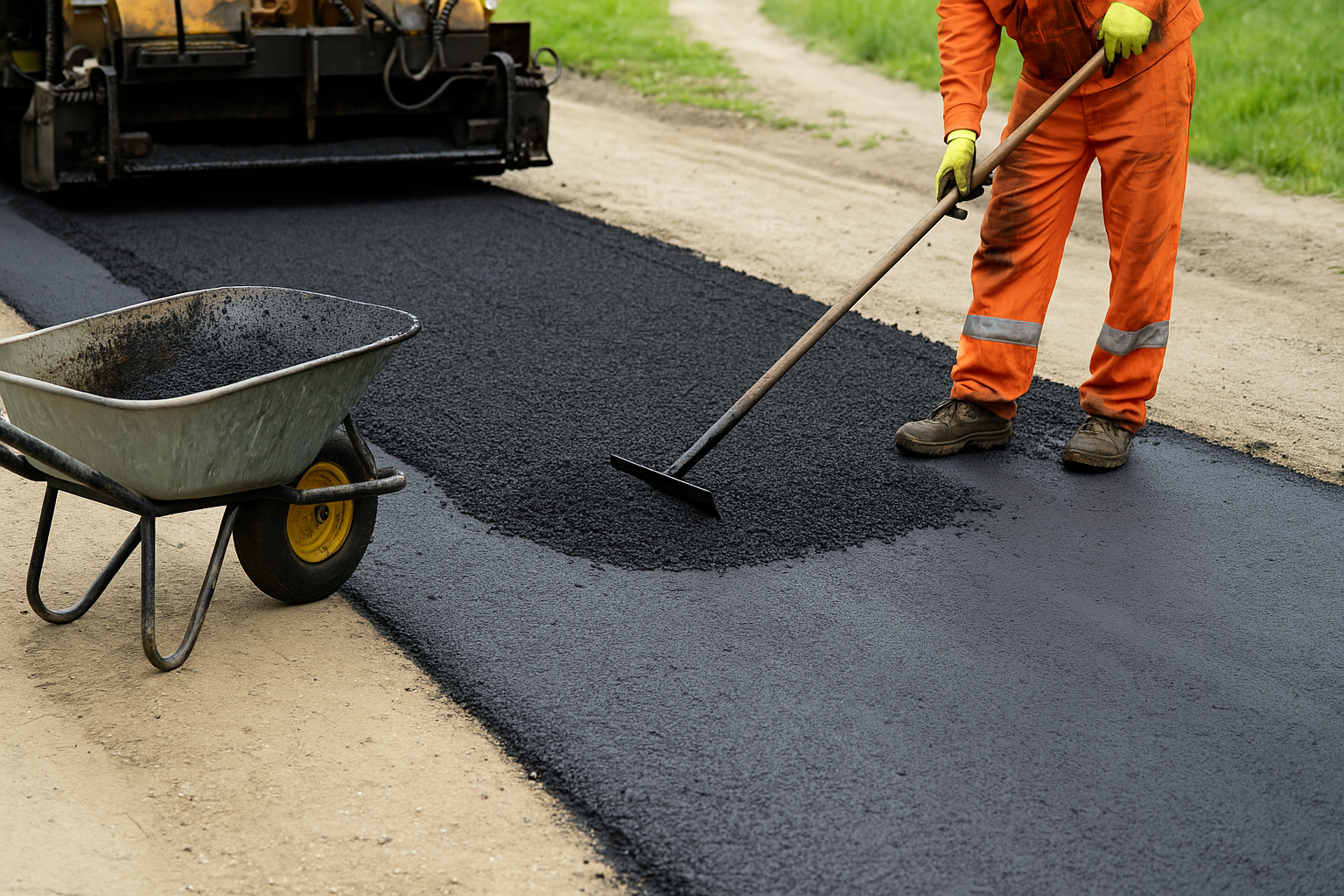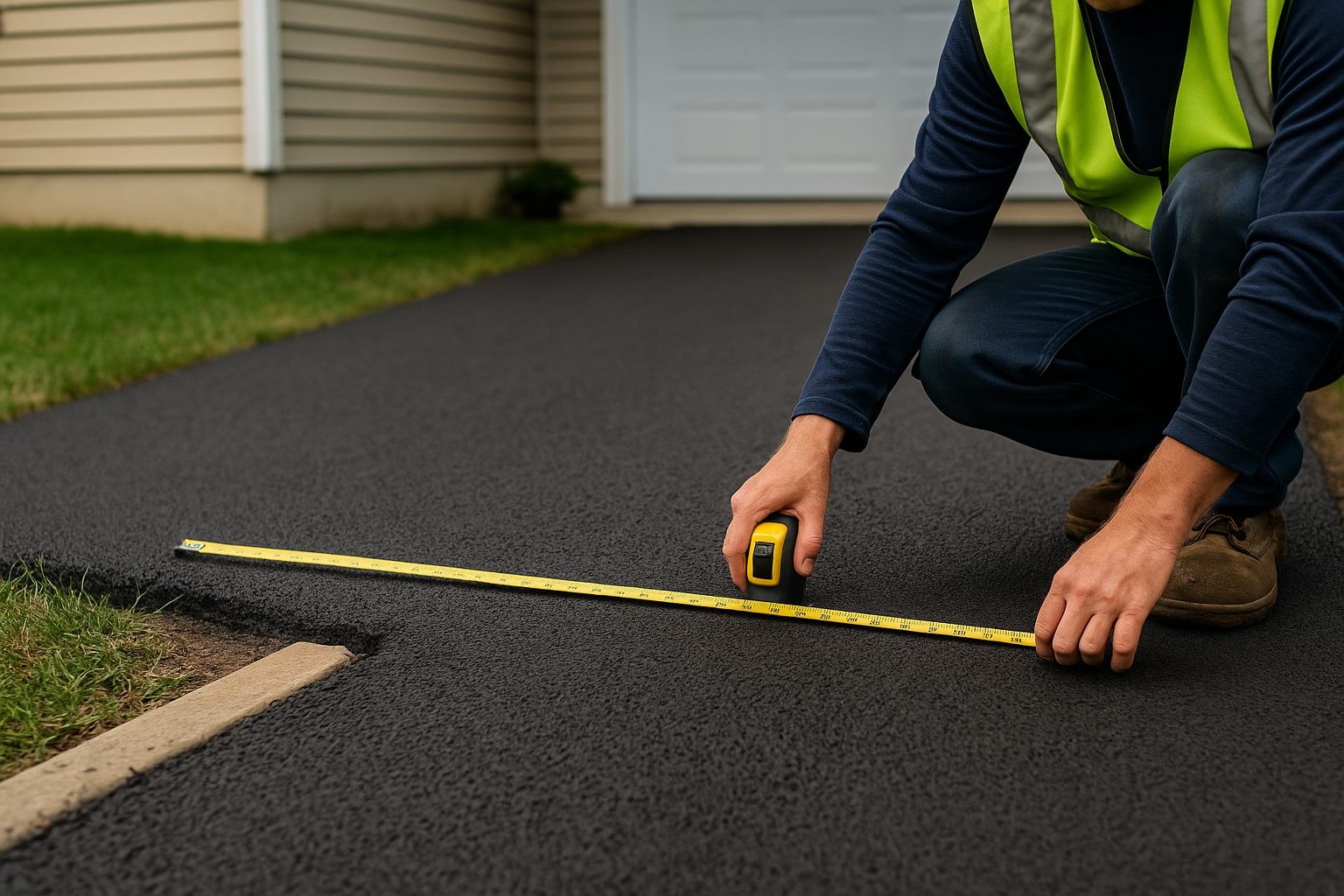Material Comparison
Cold Mix vs. Hot Mix Asphalt: Which One Is Right for You?
Not all asphalt is created equal. The choice between cold mix and hot mix can significantly affect durability, cost, installation requirements, and long-term performance. This comprehensive guide breaks down the pros and cons of each type to help you make the best decision for your specific paving project needs.

What is Hot Mix Asphalt?
Hot mix asphalt (HMA) is produced at high temperatures (typically 300–350°F) in specialized plants that precisely control the mixture of aggregates, binder, and additives. This material must be transported and applied while still warm, requiring specialized equipment and trained crews for proper installation.
Characteristics of Hot Mix Asphalt
- Superior durability: Can last 15-20+ years with proper installation and maintenance
- Excellent load-bearing capacity: Ideal for high-traffic areas and heavy vehicles
- Smooth, uniform finish: Creates a professional appearance with consistent texture
- Weather resistance: Better performance in extreme temperatures and weather conditions
- Compaction quality: Achieves optimal density when properly installed, enhancing longevity
Best Applications for Hot Mix
- Residential driveways intended for long-term use
- Commercial parking lots with regular traffic
- Public roads and highways
- Industrial facilities with heavy equipment
- Any application where longevity and performance are priorities
Limitations of Hot Mix
- Requires professional installation with specialized equipment
- Weather dependent—typically installed in temperatures above 50°F
- Must be used shortly after production while still hot
- Higher initial installation cost compared to cold mix
- Not suitable for DIY applications without proper equipment
What is Cold Mix Asphalt?
Cold mix asphalt is manufactured with special emulsifiers or cutback agents that allow it to remain workable at ambient temperatures. It comes pre-mixed and ready to use, making it accessible for repairs and smaller projects without specialized equipment.
Characteristics of Cold Mix Asphalt
- Convenience: Ready to use straight from the container or bag
- Flexibility: Can be stored for extended periods and used as needed
- Weather tolerance: Can be applied in cooler temperatures and even light rain
- Accessibility: Available in small quantities from home improvement stores
- Simplicity: Requires minimal equipment and technical knowledge
Best Applications for Cold Mix
- Emergency pothole repairs
- Small patch jobs and utility cuts
- Temporary repairs during winter months
- DIY applications for homeowners
- Low-traffic areas where premium durability isn't essential
- Remote locations where hot mix isn't readily available
Limitations of Cold Mix
- Shorter lifespan (typically 1-5 years depending on conditions)
- Less durable under heavy traffic or extreme weather
- Slower curing time compared to hot mix
- May require more frequent maintenance and reapplication
- Not recommended for large-scale permanent installations
Side-by-Side Comparison
| Factor | Hot Mix | Cold Mix |
|---|---|---|
| Durability | High (15-20+ years) | Low to Moderate (1-5 years) |
| Installation | Professional crew required | DIY possible |
| Cost | Higher initial cost | Lower initial cost |
| Weather Limitations | Requires warm, dry conditions | Can be applied in cool, damp conditions |
| Storage | Must be used immediately | Can be stored for months |
Which Should You Choose?
The right choice depends on your specific project requirements, budget constraints, timeline, and long-term expectations. Here are some guidelines to help you decide:
Choose Hot Mix When:
- You're installing a new driveway, parking lot, or road
- The project is large-scale (over 500 square feet)
- You need a long-lasting solution (15+ years)
- The area will experience heavy traffic or weight loads
- Weather conditions are favorable for installation
- You have access to professional installation services
Choose Cold Mix When:
- You need to make emergency repairs, especially during winter
- The repair area is small (under 100 square feet)
- You're looking for a temporary solution until proper repairs can be made
- You're working in a remote location without access to hot mix
- You're a DIY homeowner handling small repairs
- Weather conditions are too cold or damp for hot mix installation
Decision-Making Tools
- Budget considerations: Cold mix is cheaper upfront but may cost more long-term due to more frequent replacement. Use the project cost calculator to compare lifetime costs of both options.
- Material calculations: For either type, use the asphalt calculator to determine exactly how much material you'll need based on your project dimensions.
- Alternative materials: Still exploring options? Check this comparison of asphalt vs. concrete to consider all your paving alternatives.
For more detailed information on proper installation depths for different applications, refer to this asphalt depth guide. To understand current market pricing for both hot and cold mix options, see this asphalt pricing breakdown.



